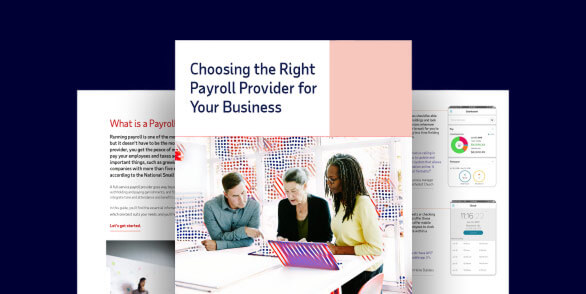Many things can go wrong with payroll. A raise promised to an employee fails to take effect. Overtime hours aren’t tracked accurately. Payroll tax deposits miss the payment deadline. The list goes on. To help address these issues before they cause lasting harm, employers often perform payroll audits.
Table of Contents
What is a payroll audit?
A payroll audit is the process by which employers verify their payroll data is accurate. They may need to scrutinize pay rates, tax withholdings, hours worked and more. Such a review may be done relatively quickly, or it could take considerable time. It all depends on the audit's scope and the business's size.
Why do employers need to conduct payroll audits?
Conducting an audit of payroll isn’t necessarily required, but it is an integral part of ensuring accuracy, among other potential benefits. Employers who audit their data regularly may be able to:
- Minimize errors
Payroll mistakes can and do happen. An audit can help uncover inaccurate calculations, missed deadlines and erroneous data entries. - Support compliance
Employment regulations are constantly changing. By auditing payroll, employers can assess how well they’re complying with wage and hour laws governing overtime, minimum wage, pay timing and payroll deductions. - Keep employees satisfied
Employees expect to be paid correctly and on time. It’s also required by federal and state laws governing the payment and timing of wages. Performing regular payroll audits and promptly addressing any discrepancies found can help mitigate dissatisfaction with employees and support compliance with applicable regulations. - Prevent fraud
Is everyone receiving a paycheck that’s supposed to? Are any employees submitting erroneous timesheets? Are tax deposits being submitted accurately and on time? Payroll audits can help answer these types of questions and shed light on fraudulent activity.
How to audit payroll
A payroll audit checklist, such as the following, can help employers navigate the process:
- Decide how often payroll will be audited – annually, quarterly, monthly or per pay period (best practice).
- Analyze employee data to ensure that only active employees receive pay and that their compensation matches what was agreed to in an offer letter or recent change, e.g., a raise.
- Cross-reference the number of hours employees worked with time and attendance data, pay rates and total earnings.
- Verify the accuracy of all variable and a typical employee payments, such as overtime pay, bonuses, tips, commission, shift differentials and reimbursements.
- Confirm that employment taxes and other payroll deductions are correct.
- Compare payroll records to bank statements and ensure that direct deposit requests are documented.
- Regularly review changes to employment regulations and adjust payroll practices accordingly.
- Carefully document and retain the results and share them with all appropriate stakeholders, e.g., HR and financial leaders.
Primary risks for payroll
Internal payroll audits allow employers to correct mistakes, which could lead to government agency audits, penalties and employee wage claims if neglected. Some of the general errors that become evident during payroll audits include:
- Employees misclassified as independent contractors
- Nonexempt workers misclassified as exempt employees
- Overtime wages miscalculated
- Payroll taxes paid incorrectly
- Payroll running behind schedule
Payroll audit best practices
Auditing payroll for the first time may seem daunting, but it doesn’t have to be. The following tips may help the procedure go smoothly:
- Reconcile payroll regularly, ideally every time it’s processed. Carefully review wage payments, deductions, tax withholdings and deposits.
- Maintain accurate records, including payroll registers, and make them readily available.
- Enlist the help of a third party to audit payroll. Auditors who are not regularly immersed in the data may be able to spot errors that the employer would otherwise have missed.
- Separate HR responsibilities to help limit fraud. For instance, one manager oversees time-tracking and another processes payroll.
- Ensure employees separating from employment are appropriately coded. Before removing them from the payroll system, ensure that all final wages have been paid and year-end tax forms have been filed and distributed.
- Use high-quality payroll and HR software solutions to manage payroll, compliance and employee data.
- If fraud is suspected, consult HR or legal counsel before speaking with the employee.
How payroll software can help employers improve audits
Auditing payroll with software is easier and less time-consuming than manual processes. Payroll service providers, like ADP, may offer:
- Error detection tools that flag potential mistakes
- A single database with all employee pay data
- Online reports and analytics
- Support with regulatory compliance
Frequently asked questions about payroll audits
Is auditing payroll a requirement?
Employers aren’t required to audit their payroll, but should do so regularly to mitigate costly errors, potential fraud and compliance violations. Ensuring that payroll is correct also helps keep employees satisfied with their jobs.
How frequently should you audit your payroll?
Employers should reconcile payroll every time it is processed and perform a comprehensive audit at least annually.
What triggers a payroll audit?
Employers should proactively audit payroll. Absent that diligence, common triggers for an audit include complaints from employees who received incorrect pay and notices from government agencies.
How long does a payroll audit take?
The length of time to complete a payroll audit may be as short as a few minutes or as long as a few weeks. Ultimately, the number of employees and the amount of data being analyzed will determine the duration. Employers can make audits easier by reconciling payroll often.
What happens if you fail a payroll audit?
If mistakes are found during a payroll audit, employers must address them immediately.
This guide is intended to be used as a starting point in analyzing payroll audits and is not a comprehensive resource of requirements. It offers practical information concerning the subject matter and is provided with the understanding that ADP is not rendering legal or tax advice or other professional services.







